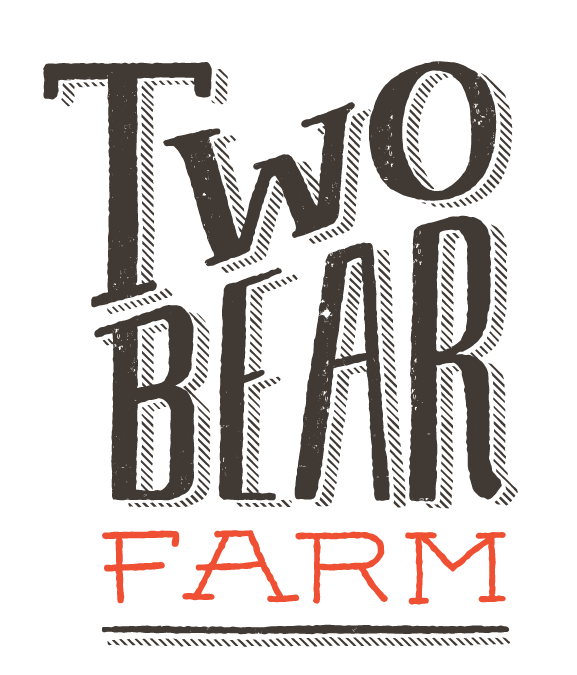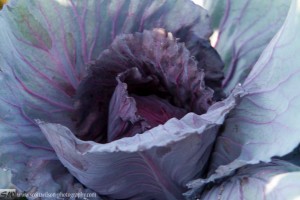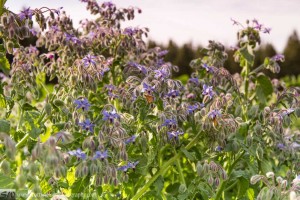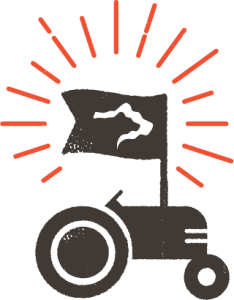Why are your carrots so delicious?
We don’t really know, to be honest. We think part of it is the soil, and part of it is the sweet variety we grow. But there are other factors such as the cold nights that enhance sweetness. Maybe it’s all the TLC we give them..
How much do CSA farm shares cost
A full share is $550, and a partial share is $375 for a 18 week CSA season that typically runs from late-May to late-September. Full payment is required before the first week of delivery, otherwise your share will be held until the balance is paid. To recognize all the support of our existing members, we are opening up an early registration for existing CSA members from December 15th until December 31st. All remaining shares will be offered during the standard enrollment period that runs from January 1st until the quota is met. Sign up here.
How big is the CSA share
There are two sizes of shares, Partial and Full. The partial size equates to approximately $20 worth of produce each week. The full share equates to approximately $33 of produce per week. We try to keep the contents diverse, so you will receive anywhere from 5 to 9 different items in each weekly basket. The best way to envision this is to picture yourself at a farmers market buying $20 or $33 worth of produce. It is a decent quantity, but not the huge overwhelming quantities that the rumors purport.
How many people will a CSA share feed?
Again, tough question, as it’s completely relative to how many vegetables each member eats. We would say a partial f share is perfect for one adult, perhaps stretched to two adults. The full share is good for 2 adults, possibly a small family. That’s our recommendation. A family of 4 that eats at home every night might not feel it’s enough, and a family of 4 that eats out 6 nights a week will be overwhelmed. We could mention some pretty hysterical and depressing examples about splitting shares (the record is 6 adults), but I won’t.
Can I split a CSA Share?
Yes. However, we do not split your share up for you. You will be required to split your share with your partner(s) after you pick it up, so you’ll need to bring spare bags to do that. One suggestion. If you are thinking of purchasing a full share and splitting it with one other person, we suggest you buy a partial share instead. The big reason is dividing 9 items up between two people is a hassle, especially if items are delicate or bagged. We take great care to get your vegetables to you in good condition, and we have some horror stories from watching share members split up shares, especially if they are in a hurry.
A few other common questions…
What if I forget to pick up my share?
The short answer is: you miss out on your share that week. That’s why its so important for you to remember, or to arrange for a friend, neighbor, or relative to come pick up for you at the designated time. As part of our social contract between members and the farm, it is the farms obligation to deliver you the share on time to the location you have selected, and it is the members obligation to makes sure the share gets picked up during that specified day and time. Forgetting shares, and then calling, texting, and emailing us to arrange for a special pickup has become a huge burden for our farm over the years, and so we are no longer offering that option. If your schedule is not conducive to this, and you need more flexibility in your life, we recommend that you forego the CSA share and simply shop at The Farmers’ Stand market when time allows.
Can I come visit the farm?
Maybe 🙂 We love our community and want people to come out and see how their food is grown. However, we are also a production farm with very few employees, and so we are not staffed appropriately to handle unscheduled visits. So, if you would like to come out to the farm, please email us to see if we have any availability. And because we have delicate plants and livestock on the farm, we request that you leave your dogs at home. Thanks for your understanding!
Are Organic vegetables better than conventional vegetables?
Yes, maybe, and no.
Organic vegetables are healthier to consume because they do not have any toxic chemical residues on them from pesticides. You may not realize it, but the FDA has set allowable levels for residue on conventional vegetables for substances that are known endocrine disrupters and cause cancer.
That said, organic vegetables don’t necessarily contain more nutrients or trace minerals than conventional vegetables. This nutritional content is a result of how well soil is managed and amended, which is specific to individual farmer practices and philosophy, rather than a general trait of the organic or conventional industries. I will say, Organic farms and practices tend to better promote soil health, which goes a long way in providing balanced plant nutrition. There is a lot of confusing media out there, such as the infamous Time magazine article a few years back, that compares industrial conventional production to industrial organic production, and then makes the blanket statement that there is no difference in nutrition. But this was very misleading, because I believe small scale organic would show otherwise.
What’s more important, local food or organic food?
Yes. Seriously, these are more separate issues than you might first think. Buying local is more of an economic decision. You are keeping money in your community, helping a neighbor, and that money tends to recirculate in the community rather than flow out of state. Buying local helps support local business and add diversity to your community, but is says nothing about the quality or health content of the food. GMO corn is local if you live in the midwest.
Buying organic is a matter of health and nutrition. It guarantees you will not have synthetic chemical residue on your produce. It also supports a model of production that is more ecosystem friendly. So if healthy food is your top priority, than Organic is more important than local, but:
The best answer is local AND organic.









